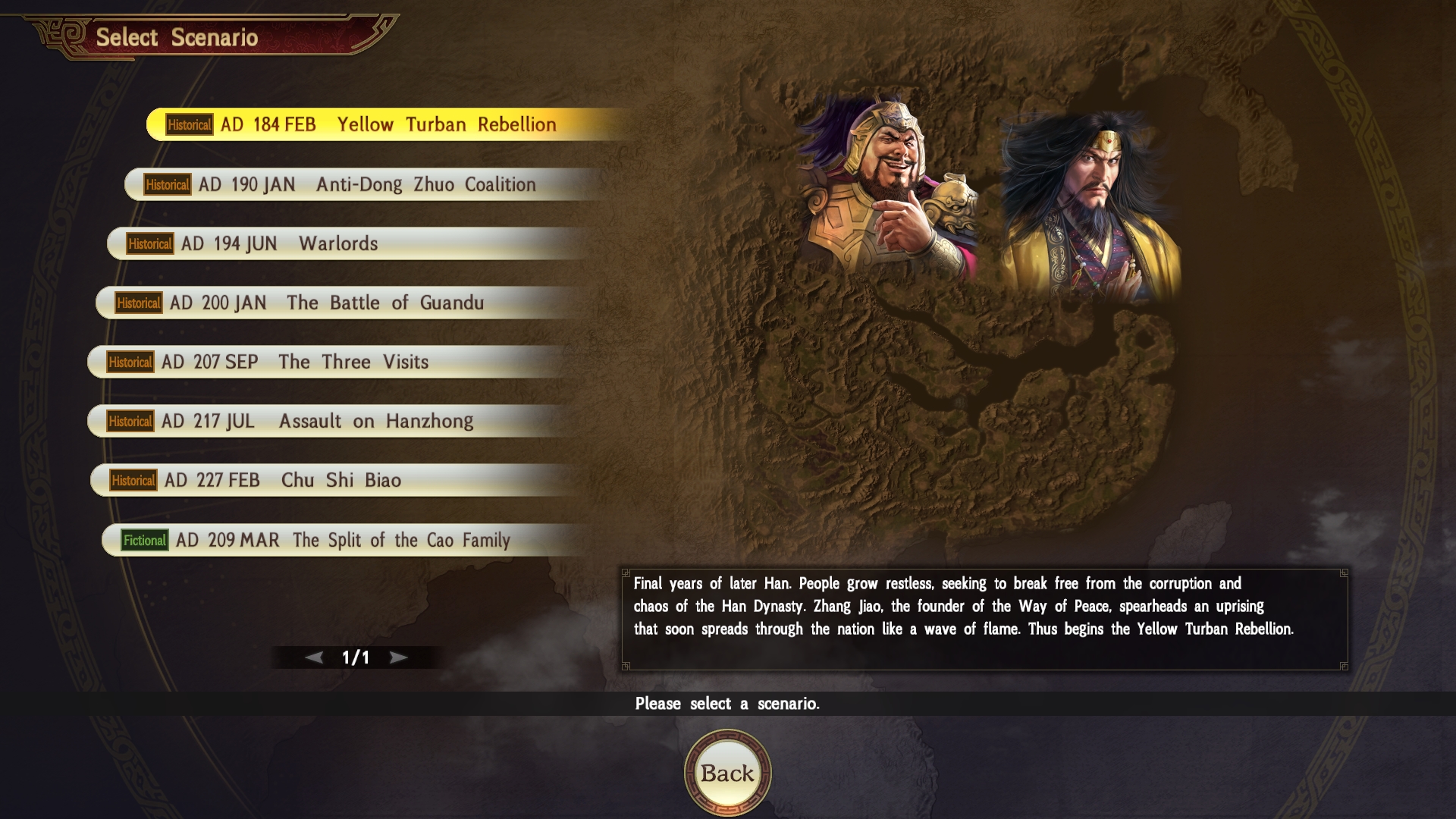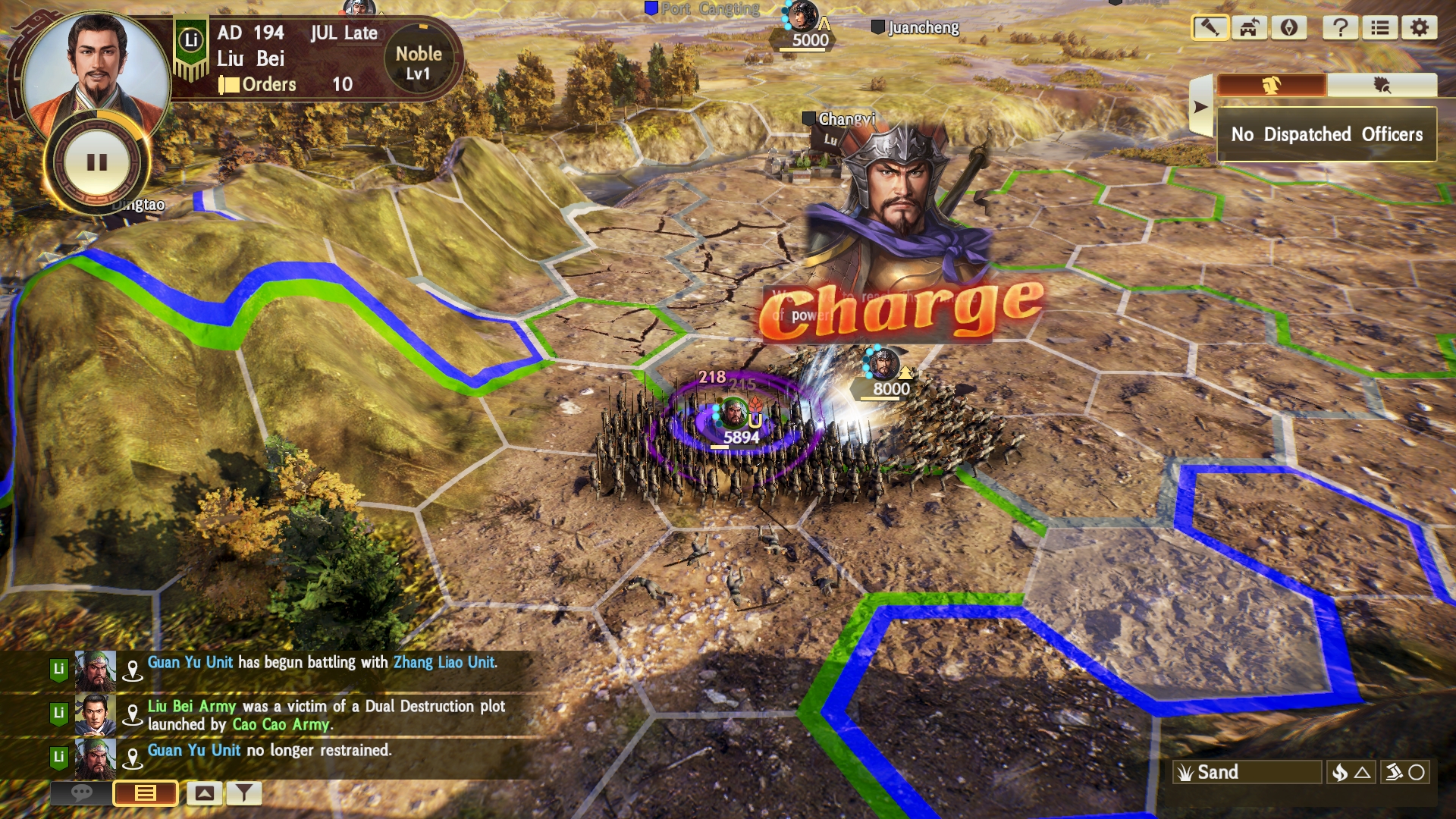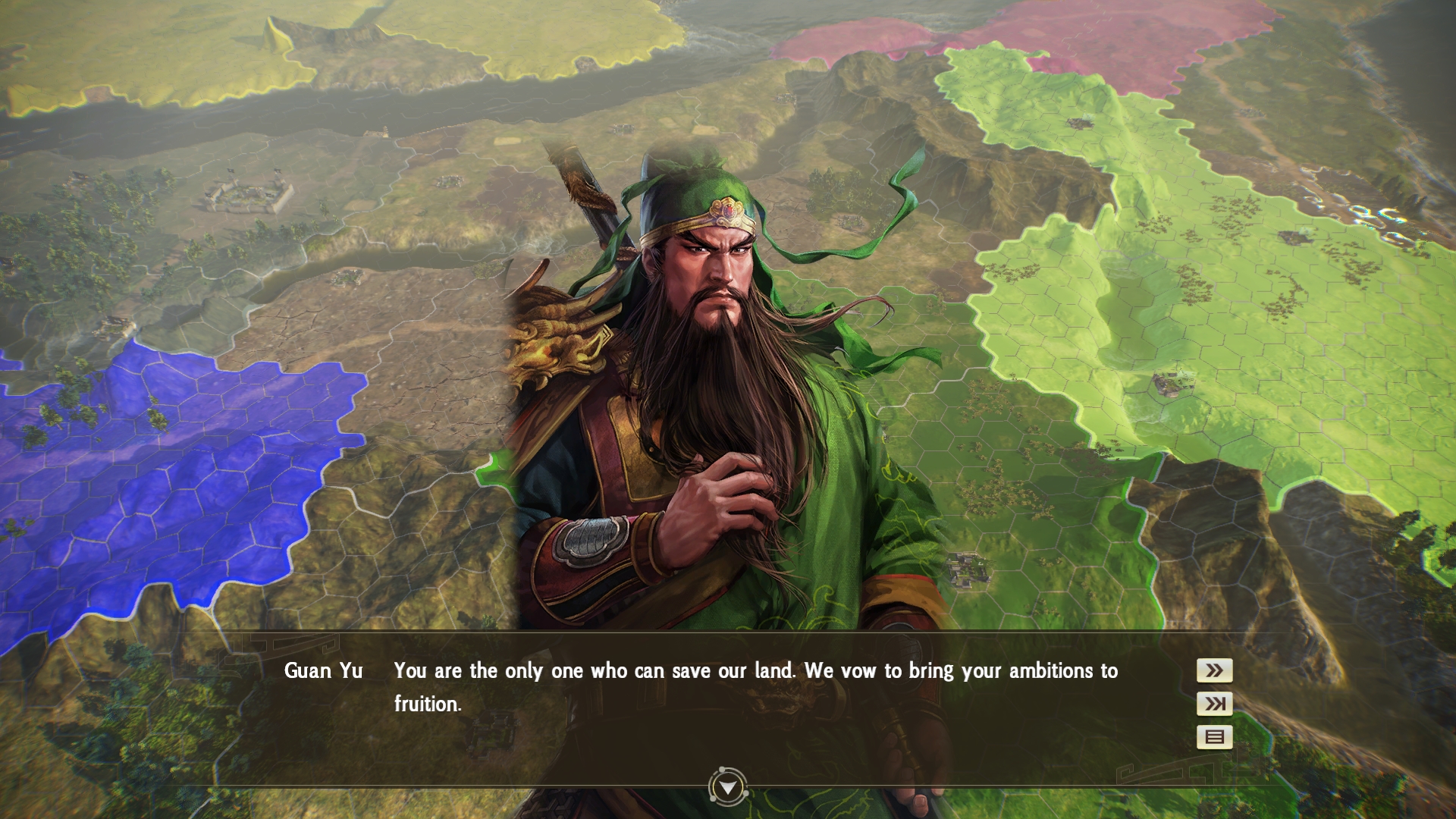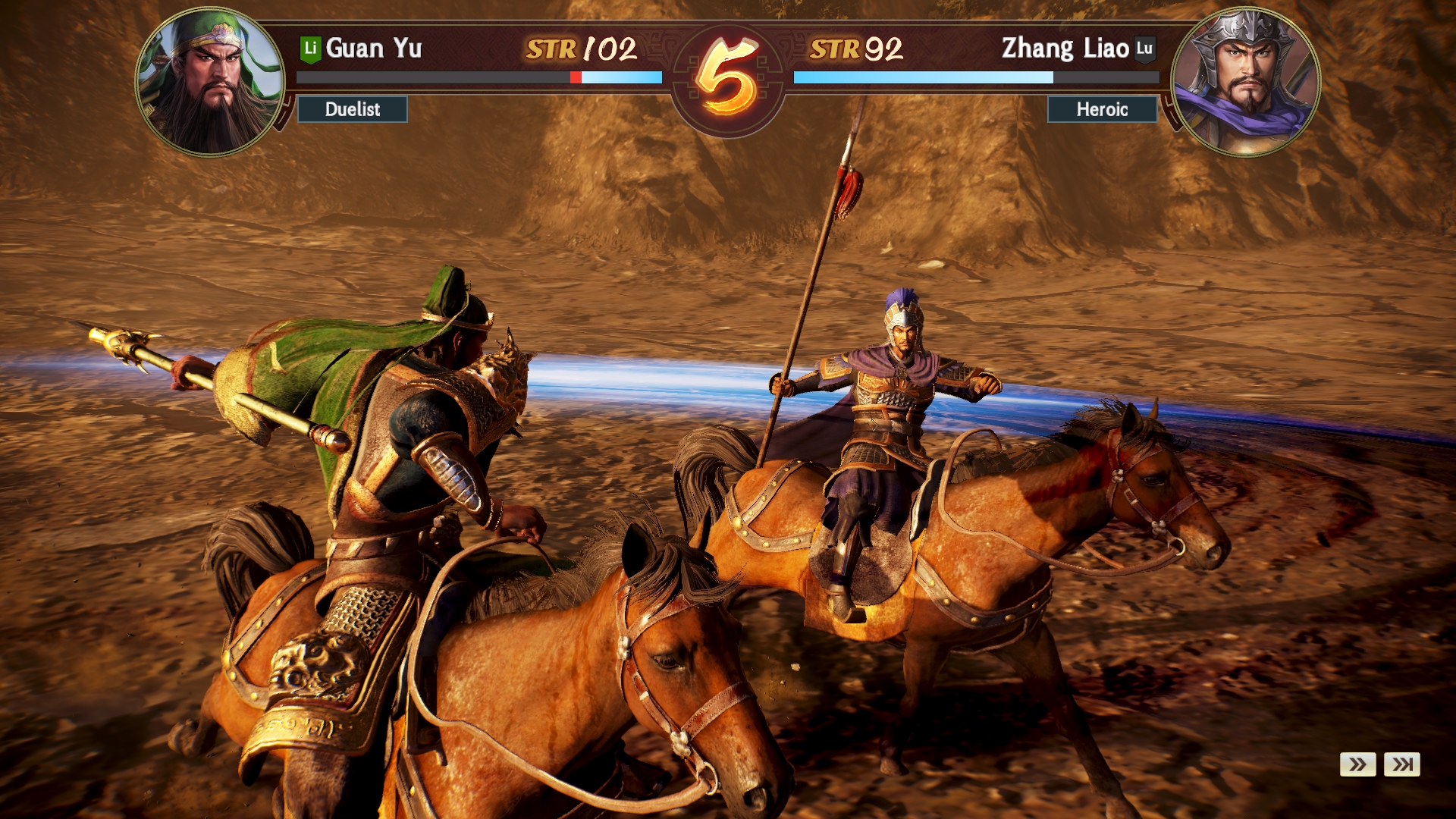Our Verdict
An underwhelming strategic take on the Three Kingdoms, especially compared to Total War.
PC Gamer's got your back
What is it? A turn-based strategy game about conquering ancient China one hex at a time.
Expect to pay: $60/£50
Developer: Koei Tecmo
Publisher: Koei Tecmo
Reviewed On: Core i7 4770K, GeForce GTX 1070, 16 GB RAM, SSD
Multiplayer? None
Link: Official site
Koei Tecmo has been at the forefront of adapting the semi-historical classic of Chinese literature, Romance of the Three Kingdoms, for decades. But in the shadow of last year's superb Total War: Three Kingdoms, the fiddly and underdeveloped Romance of the Three Kingdoms 14 gives us a take on one of China's most well-known periods of historical tumult that really pales in comparison. There are a handful of interesting ideas kicking around, but sub-par English localization and a largely boring battle system didn't hold my interest for long.
The action takes place on a hex-based map covering most of China proper, with a starting scenario that can vary wildly based on which of the eight spaced-out start dates you choose. If you want to experience as much of the conflict as possible, you can jump in at 184 CE, during the height of the Yellow Turban Rebellion, just as the three legendary brothers, Liu Bei, Guan Yu, and Zhang Fei have taken their oath of loyalty in the peach garden. If you've heard that story before and want something significantly different, you can take command in 227 when most of the novel's initial power players are dead and the titular Three Kingdoms are locked in a tense struggle.

My favorite addition is a 'what if' scenario presenting a hypothetical succession struggle among the clan of master manipulator Cao Cao, which breaks up one of the most powerful factions. Some of the earlier starts felt a little underdeveloped, but overall I relished the chance to pick up the thread of the story at key turning points such as the formation of the coalition against big bad dude Dong Zhuo and the pivotal Battle of Guandu.
These scenarios never truly shine, though, because the battles just aren't that interesting.
The way each province is divided into small hexes that can be captured individually is kind of cool. You can, for example, cut off a foe's supply lines even within their own territory by sending a small, agile force to capture the hexes between their nearest city and their main army, leaving it starving and vulnerable. It's also possible to place minor structures like arrow towers and pit traps to create clever chokepoints and turn the tide of what would otherwise be a dire struggle.
But the battles are largely boring. You have some control over what kinds of armies you field, picking from dozens of commanders, selecting formations and tactics, and how much of your limited pool of troops to commit. But once armies meet on the field, everything is out of your hands and a bit hard to follow. Characters will use their special abilities automatically, which can turn the tide—especially when you have two or more armies led by generals with a strong bond fighting together. But it wasn't very often that I felt like decisions I made ahead of time had a major impact on the fighting. Even one-on-one character duels basically involve watching a cutscene of two guys on horses whacking away at each other until one of them runs out of hitpoints.

Managing your kingdom isn't exactly thrilling, either. There are a number of national-level minster positions to fill that grant bonuses across the board, as well as local governors and recruiters who can boost how many troops you get each season and help passively capture hexes in areas where you already control the main settlement. I usually didn't feel like I was making interesting trade-offs in building my court, though. There is often a clear best candidate for each job, and interesting decisions only arose when I didn't have enough officers to fill all of the offices and had to choose which locales to prioritize. The factions aren't even that well differentiated other than their spawn locations and starting pool of officers.
The menus are a bit of an annoyance, too—at least until you learn what everything means. The English localization is fairly sloppy, which can make certain essential options and information difficult to find. "Domestics" is not the department that sells blenders, but the submenu for appointing local governors. This trend carries across the entire UI, with many odd word choices leading to confusion, where a clearer alternative was readily available. And the dialogue is similarly silly. "So getting stronger is a good thing. Heh, I have to remember this," Liu Bei declares sagely in an early mission.

At least the storied heroes and villains are well-represented. The benefit of this franchise having been around so long is that dozens and dozens of characters, even minor ones, have beautifully-animated 2D portraits, 3D models (which sadly only show up in duels), and hand-picked traits that fit their personalities and their roles in the novel. The art direction is stylish, readable, and exciting. The gang's all here, and long-time Three Kingdoms fans won't be disappointed seeing old friends and enemies in all their bombastic, signature glory.
I wish I could say the same for the map, which is unmistakably dated. Mountains are boring, low-poly lumps. Most textures look decidedly a generation or two past their prime. The lighting is very flat. The graphics options seem completely aware of this, giving you the option between "Standard," "Low," and "Lowest".
It's not a chore to conquer China in Romance of the Three Kingdoms 14. It's just underwhelming. Especially when we've seen this era represented so much better by Creative Assembly so recently, I couldn't come up with a compelling reason why I'd play this instead. Only die-hard fans of the franchise who want to see Koei's specific takes on these characters will be likely to find much to get excited about here. And given that this is the fourteenth entry in the series, I expected a lot more.
An underwhelming strategic take on the Three Kingdoms, especially compared to Total War.
Len Hafer is a freelancer and lifelong PC gamer with a specialty in strategy, RPGs, horror, and survival games. A chance encounter with Warcraft 2: Tides of Darkness changed her life forever. Today, her favorites include the grand strategy games from Paradox Interactive like Crusader Kings and Europa Universalis, and thought-provoking, story-rich RPGs like Persona 5 and Disco Elysium. She also loves history, hiking in the mountains of Colorado, and heavy metal music.


